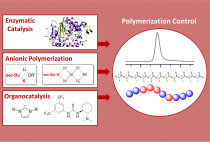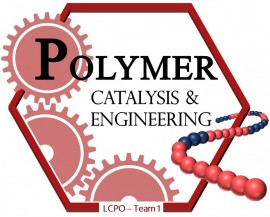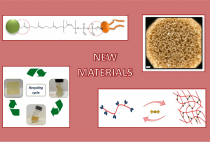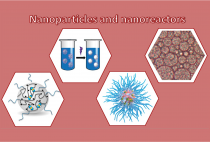
Team 1 : Polymerization catalyses and engineering

With the principle in mind that how a polymer is synthesized matters as much as which polymer is targeted, the main goal of our group is to develop alternative methodologies enabling efficient, highly chemoselective -sometimes stereoselective- reactions, and sustainable design of macromolecular compounds with a high level of control of their molar masses, dispersity, microstructure, tacticity, functionality, architecture, dimension, size and shape. Our approaches thus encompass synthetic tools, including catalysis, “controlled/living” polymerization methods, including a thorough understanding of the underlying reaction mechanisms, and polymerization processes with a special focus on those operating in dispersed media. Our essential skills thus lie at the interface of molecular chemistry, catalysis, macromolecular synthesis and materials science, which allows us to address cross disciplinary projects. Special emphasis is placed on:
- The design of activation or catalysis systems for highly selective, rapid and scalable polymerization reactions with strong potential for industrial implementation
- The development of recyclable and bio-inspired catalytic nanoreactors that can be implemented in aqueous media, while providing improved catalytic performance
- The engineering of polymers, nanoparticles and nanostructures of controlled size and shape for targeted applications













